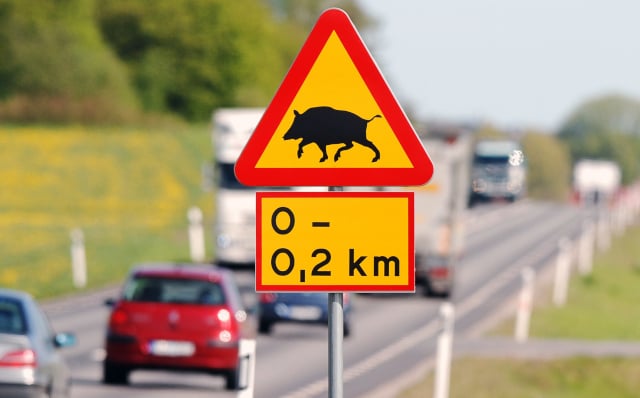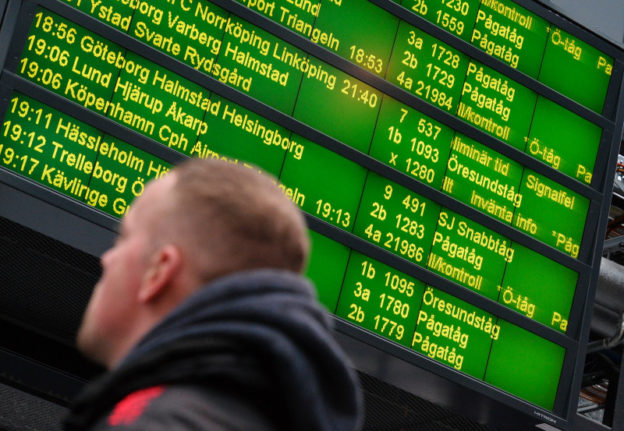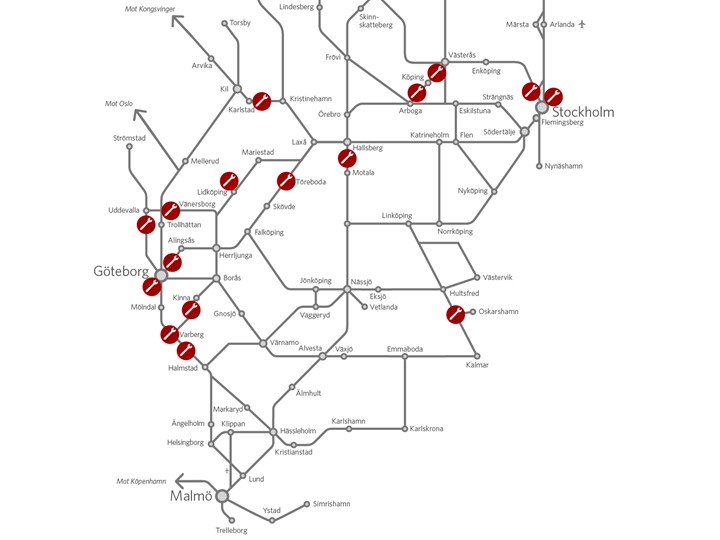More than 62,000 drivers are involved in wildlife accidents on Swedish roads every year, according to official statistics by the National Wildlife Accident Council, and the figure just keeps rising.
There are several reasons believed to be behind the rise.
For one, a warmer climate with mild winters and dry spells in summer is forcing the animals to travel longer distances in search of water.
Another reason is a growing population of wild boar in Sweden, which adds to the statistics. A total of 4,553 accidents involving wild boar were reported to the police between January 1st and September 31st.
Accidents involving roe deer have also increased in recent years.
On average, there is a wildlife accident every eighth minute in Sweden and the months of October and November tend to be particularly bad.
This is because there are more people and animals out and about in the forests: it is the season for mushroom and berry foraging, and it is the animals' mating period when they are out looking for romance.
The animals also tend to move from one place to another during dawn and dusk, which this time of the year happen to coincide with the times most Swedes are driving to and from their workplace.
So how do you avoid getting involved in a wildlife accident?
Perhaps it goes without saying, but keeping to the speed limit is a good idea.
Watch out for warning signs, but also make sure you are constantly scanning the sides of the road for any movement.
And keep your distance to the car in front of you, so that they have time to hit the brakes.
Keep the animals' behaviour in mind, and remember that many of them, for example roe deer and wild boar, tend to travel in larger groups, so if you spot one there are probably more nearby.
Source: National Wildlife Accident Council and TT
Vocabulary
elk – (en) älg
wild boar – (ett) vildsvin
roe deer – (ett) rådjur
accident – (en) olycka
behaviour – (ett) beteende
We're aiming to help our readers improve their Swedish by translating vocabulary from some of our news stories. Did you find it useful? Do you have any suggestions? Let us know.




 Please whitelist us to continue reading.
Please whitelist us to continue reading.
Member comments